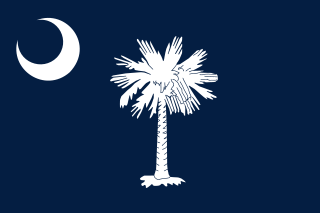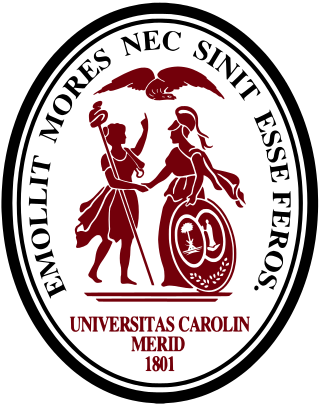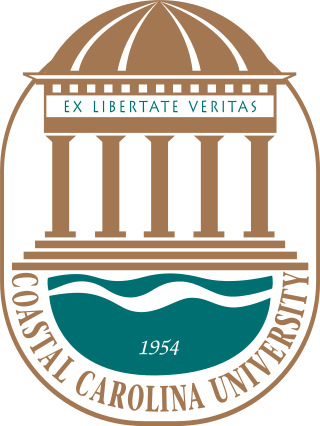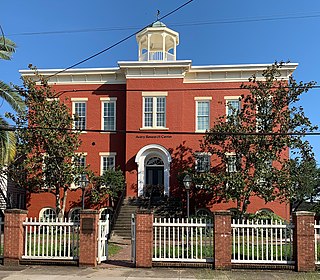History
In the late 1990s, local business and legislative leaders were concerned that the region was losing high-tech companies because of the limitations in graduate education available in the area. They believed that Charleston should be a perfect setting for economic growth in the new economy – with the nation’s fourth largest seaport, a center of Homeland Security activity, and a region of ecological and historical richness. Yet, the idealized concept was hampered, at the time, by the lack of graduate opportunities needed to attract and retain employees and new businesses.
Established in 2001, the LGC brings together the power of local, Lowcountry public universities – the College of Charleston, the Medical University of South Carolina and The Citadel to help provide accessible graduate-level programs and courses. With these institutions, plus the University of South Carolina and South Carolina State University, the LGC formed new partnerships and ways to bring graduate-level education to the area. The LGC consistently focuses on the economic development needs of the Charleston Metro Area, keeping in contact with local Chambers of Commerce and organizations associated with three focus sectors: 1) advanced manufacturing and IT; 2) healthcare and community wellness; and 3) K-12 education.
The LGC has previously partnered with Clemson University and Anderson University.
In August 2020 the LGC moved from the College of Charleston North Campus previously located on Paramount Dr. in North Charleston, SC, which previously housed CofC's School of Professional Studies, to Trident Technical College. [1]

South Carolina is a state in the coastal Southeastern region of the United States. It borders North Carolina to the north, the Atlantic Ocean to the southeast, and Georgia to the southwest across the Savannah River. Along with North Carolina, it makes up the Carolinas region of the East Coast. South Carolina is the 40th-largest and 23rd-most populous U.S. state with a recorded population of 5,118,425 according to the 2020 census. In 2019, its GDP was $213.45 billion. South Carolina is composed of 46 counties. The capital is Columbia with a population of 136,632 in 2020; while its most populous city is Charleston with a 2020 population of 150,227. The Greenville-Spartanburg-Anderson, SC Combined Statistical Area is the most populous combined metropolitan area in the state, with an estimated 2023 population of 1,590,636.

Charleston is the most populous city in the U.S. state of South Carolina, the county seat of Charleston County, and the principal city in the Charleston metropolitan area. The city lies just south of the geographical midpoint of South Carolina's coastline on Charleston Harbor, an inlet of the Atlantic Ocean formed by the confluence of the Ashley, Cooper, and Wando rivers. Charleston had a population of 150,227 at the 2020 census. The population of the Charleston metropolitan area, comprising Berkeley, Charleston, and Dorchester counties, was estimated to be 849,417 in 2023. It ranks as the third-most populous metropolitan statistical area in the state, and the 71st-most populous in the United States.

Beaufort is a city in and the county seat of Beaufort County, South Carolina, United States. Chartered in 1711, it is the second-oldest city in South Carolina, behind Charleston. Beaufort is known as the "Queen of the Carolina Sea Islands". The city's population was 13,607 at the 2020 census. It is part of the Hilton Head Island–Bluffton metropolitan area.

Hardeeville is a city in Jasper and Beaufort counties in the U.S. state of South Carolina. The population was 7,473 as of the 2020 census, an increase of over 150% since 2010. Hardeeville is included within the Hilton Head Island–Bluffton metropolitan area.

North Charleston is a city in Berkeley, Charleston, and Dorchester counties in the U.S. state of South Carolina. As of the 2020 census, North Charleston had a population of 114,852, making it the third-most populous city in the state, and the 248th-most populous city in the United States. North Charleston is a principal city within the Charleston-North Charleston, SC Metropolitan Statistical Area, which had an estimated population of 849,417 in 2023.

The University of South Carolina Beaufort is a public college with three campuses in the Lowcountry region of South Carolina. It is part of the University of South Carolina System, enrolls about 2,000 students, and offers over 50 areas of study. The main campus is in Bluffton, South Carolina. The institution's campus in Beaufort houses the school's honor programs and the Department of Visual Arts & Design. The campus location on Hilton Head Island is home to the institution's program for hospitality management.
The Pee Dee is a region in the northeast corner of the U.S. state of South Carolina. It lies along the lower watershed of the Pee Dee River, which was named after the Pee Dee, an Indigenous tribe historically inhabiting the region.

Coastal Carolina University is a public university in Conway, South Carolina. Founded in 1954 as Coastal Carolina Junior College, and later joining the University of South Carolina System as USC Coastal Carolina, it became an independent university in 1993.

The Citadel Military College of South Carolina is a public senior military college in Charleston, South Carolina, United States. Established in 1842, it is the third oldest of the six senior military colleges in the United States. The Citadel was initially established as two schools to educate young men from around the state, while simultaneously protecting the South Carolina State Arsenals in both Columbia and Charleston.
University School of the Lowcountry (USL) is a small independent school, grades 3-12, located in Mount Pleasant, South Carolina with IRS 501(c)(3) tax-exempt status. University School is located on the campus of Hibben United Methodist Church. USL is designed for high-achieving, curious, hard-working, nice, and empathetic students. The school has consistent exemplary performance on the 7th grade Duke TIP SAT and 8th grade PSAT programs. Charleston reporter Stratton Lawrence termed USL "A School With No Bullies" in a 2013 article.

Trident Technical College (TTC) is a public community college with its main campus in Charleston, South Carolina and other campuses throughout Berkeley, Charleston, and Dorchester counties. It is part of the South Carolina Technical College System. Enrollment for each semester is approximately 12,000 students working their way toward college transfer associate degrees and technical associate degrees, diplomas, and certificates.
Education in South Carolina covers the history and current status of education at all levels, public and private, and related policies.

The economy of South Carolina was ranked the 25th largest in the United States based on gross domestic product in 2022. Tourism, centered around Myrtle Beach, Charleston, and Hilton Head Island, is the state's largest industry. The state's other major economic sector is advanced manufacturing located primarily in the Upstate and the Lowcountry.
The history of Beaufort, South Carolina, is one of the most comprehensive and diverse of any community of its size in the United States.

The Piedmont Atlantic megaregion is a neologism created by the Regional Plan Association for an area of the Southeastern United States that contains parts of the states of Alabama, Georgia, Tennessee, South Carolina, and North Carolina. The region includes the Atlanta, Birmingham, Charlotte, Memphis, Nashville, Research Triangle (Raleigh-Durham), Upstate South Carolina (Greenville-Spartanburg-Anderson), and Greensboro-Winston-Salem-High Point metropolitan areas. The megaregion generally follows the Interstate 85/20 corridor. According to Georgia Tech, the Piedmont Atlantic represents over 12 percent of the total United States population and covers over 243,000 square miles (630,000 km2) of land.

The Avery Research Center for African American History and Culture is a division of the College of Charleston library system. The center is located on the site of the former Avery Normal Institute in the Harleston village district at 125 Bull Street in Charleston, South Carolina. This historic secondary school trained Black students for professional careers and leadership roles, and served as a hub for Charleston’s African-American community from 1865 to 1954.
The Zucker Family School of Education is one of the five schools comprising The Citadel in Charleston, South Carolina. The school offers bachelor's and master's degrees in several Education specialties. It was established in 2002 as The Citadel reorganized its existing departments into the five schools. The school is currently located in Capers Hall, but will move to Bond Hall after completion of a new building for the School of Business.
Lucille Simmons Whipper was an American Democratic Party politician who served in the South Carolina House of Representatives from 1986 to 1996. Whipper is most well known for accomplishments in both education and politics. In the educational field, Whipper worked at two high schools before landing a job at the College of Charleston. Here, Whipper implemented an affirmative action program and played a major role in integrating the Avery Institute, a center dedicated to African American history, with the college. In politics, Whipper was the first black woman to represent a Charleston County seat in the legislature. She was also the first woman of color ever to be elected to the South Carolina General Assembly.














